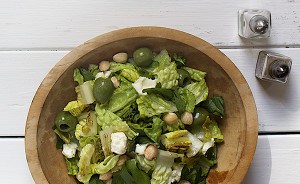
My boyfriend’s mild lactose intolerance and caffeine addiction mean that when we get coffee (and we do—a lot), he orders a non-dairy creamer or milk. I’ve occasionally ordered soy milk in my lattes, but I was surprised to walk into Dunkin’ Donuts and find that instead of soy milk, they carry almond milk. This sweet, nut-derived concoction has skyrocketed in popularity over the past few years and has become America’s favorite non-dairy alternative.
We love almond milk so much, in fact, that many dairy farmers are feeling pressure to replace cow grazing crops with almond trees. According to market research company IRi, Americans bought $890 million dollars of almond milk last year (compared to only $286 million of soy milk). “The economics for the trees has been very good,” dairy farmer Richard Wagner told Bloomberg. “Dairymen have a decision.”
Many dairy farmers are growing almonds and going organic as a pragmatic response to the recent drop in dairy demand and subsequent government bailout.
Some argue that almond milk shouldn’t even be called milk. The popular brand Almond Breeze contains only about 2 percent almonds, and the rest of the beverage consists of mostly water, sugar, and starches. In addition to being made into “milk”, almonds are used in producing other dairy substitutes. We already know that almonds pair well with cheese—but how does the nut actually become cheese?
Many people choose to make almond cheese at home. To do so, the almonds are soaked for about a day, then blended in a food processor, strained, and refrigerated overnight. Most recipes include blending in garlic or other savory components into the cheese itself. The result is something flavorful and cheese-like, but not truly cheesy. Almond cheeses tend to be firm and crumbly, having a texture and sharpness often compared to feta.
However, some have succeeded in processing almond milk like animal milks. Kite Hill, a Whole Foods supplier, adds in cultures and enzymes so that nut milk ferments like the real thing. They produce soft-ripened “delicacies” and ricotta with various flavor profiles (they generally avoid using the term “cheese” in their branding). Terminology for these products is up for debate right now, because though the expansion of the vegan cheese market is an ongoing trend, many argue that they should not be referred to as cheeses.
Feature Photo Credit: Harsha K R | CC




